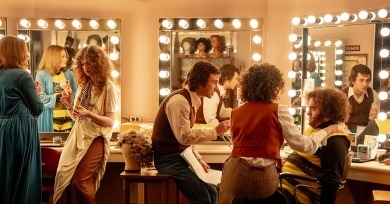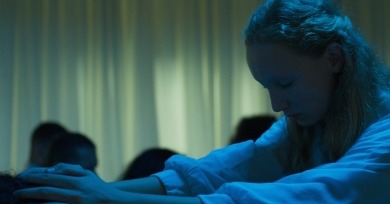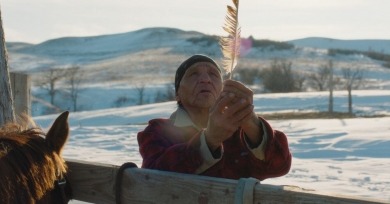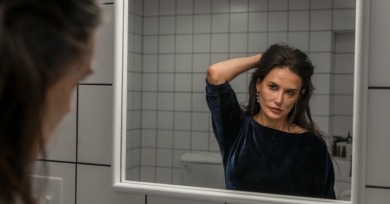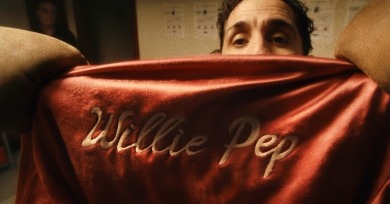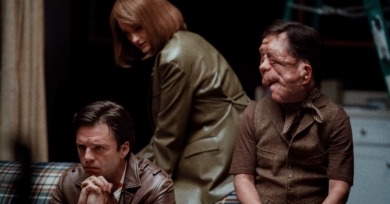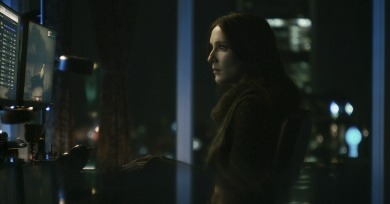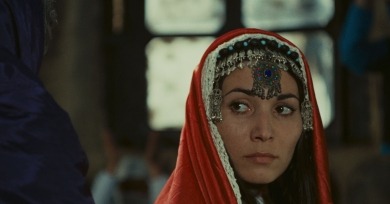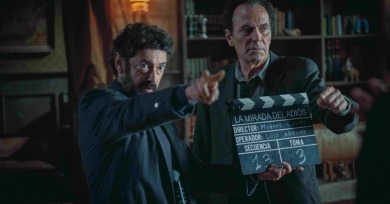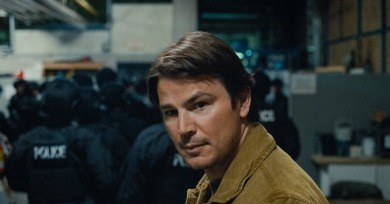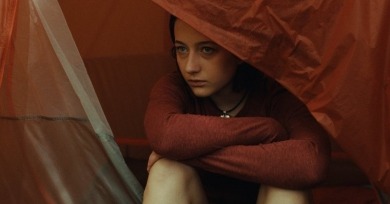Reviews
The films of Sean Baker, collectively approaching something like a sexploitation genre unto itself, seem to be trying to split the difference between Hollywood and raw grassroots guerilla cinema, landing on a kind of pop realism that feels aesthetically uniquely his, if hollow at the core.
For better or worse, Aaron Sorkin has made his dramatic metier out of the kind of organized backstage chaos portrayed in Saturday Night; it cannot be understated how strange it is to watch someone poorly imitate his style, draining it of any rhetorical rhythm while retaining the self-importance.
Set in the humid depths of the Amazon basin, Transamazonia byPia Marais exudes a rhythmic, meditative quality in tension with its disquieting mise en scène and cogent postcolonial critique.
Each story explores questions of indigeneity and its reaction or resistance to the imposition of Western law and order, but even though a character or prop might reappear across sections, and images occasionally rhyme, the chapters are distinct.
Using an overtly erotic visual language that verges on the puritanical, Fargeat bludgeons the viewer, reducing men to slobbering wolves unable to contain themselves in the presence of a youthful woman. The film’s women have no artistic ambition beyond the thrill of being watched and fawned over.
The Featherweight actively engages with core ideas behind direct cinema and verité, residing in a blurry middle ground between the two genres, that is between minimizing a documentarian’s presence and actively participating in the action.
Schimberg has furthered his incisive dissection of the cinematic representation of disfigurement and disability. Adam Pearson returns as a lead in A Different Man—in which he not only gets to be effortlessly charming but even plays the Chad to another character’s Beta.
What is happening, or what has happened, in the obviously haunted space of Kelly-Anne’s mind and body is not something we are privy to, except via subtle context clues.
The setting is a small village on the north coast of Iran. At its edge is a strip of shoreline nearly always crowned by a diadem of dense haze. The film, which is almost unforgiving in its succession of gorgeously photographed imagery, is about what reaches through this liminal boundary from the outside world.
Close Your Eyes is primarily a movie about growing old and the power of memory, with cinema as its central metaphor. The underlying tension throughout all of Erice’s work is that which lies between the still and the moving image, between the desire to freeze time and the inevitability of its passage.
Would someone moved by the familial bonds honored onscreen also be encouraged to reconsider the larger carceral system? Or would they simply judge the fathers for making “bad decisions” that keep them from their children?
Just as Hitchcock noted that the best suspense comes from letting the audience in on the secret, Shyamalan forces the viewer to wait, wonder, and witness as Trap’s villain protagonist navigates his escape from the trap that has been set for him.
Understandably the film’s directors, Jesse Moss and Tony Gerber, are not interested in the inherently comic potential of their material, even if they cite Kubrick’s Dr. Strangelove as an influence. After all, people, this is no laughing matter.
The debut feature of writer-director India Donaldson pivots on a young woman’s realization that it is sometimes wisest to keep those we love at an arm’s length.

